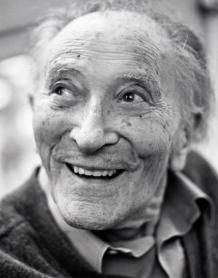François Fejtö, journalist, political scientist, historian

Il est né Fischel Ferenc le 31 août 1909 à Nagykanizsa. Son père, d’origine juive, est libraire et imprimeur. Fischel Ferenc fait des études de lettres à la Faculté de Pécs car le numerus clausus antisémite en vigueur l’empêcha d’être accepté à l’Université de Budapest et s’engage en politique. Membre du Parti social-démocrate dès 1934, il fonde en 1935, avec le poète Attila Jozsef, la revue littéraire et politique Szép Szó, connue pour ses prises de position antifascistes et antistaliniennes. Condamné à six mois de prison à Budapest, il entre en France le 15 août 1938 où il est traducteur et journaliste. Pendant la guerre, il est engagé volontaire dans le 22e régiment de marche puis résistant dans le Lot. Rentré à Paris, il exerce à l’Agence France Presse puis comme directeur du service de presse de la Légation de Hongrie dont il démissionne le 1er août 1949 pour divergence d’opinions avec le gouvernement de son pays. Il obtient le statut de réfugié en 1950. Il est naturalisé en 1955.
François Fejtő a consacré l'essentiel de sa carrière à l'étude des régimes est-européens. C’est l’un des meilleurs spécialistes occidentaux de l’évolution du monde communiste. Son Histoire des démocraties populaires, parue en 1952, est traduite dans dix-sept langues et plusieurs fois rééditée. Il a été l’un des premiers à dénoncer les crimes du stalinisme au moment des grands procès de Moscou et a démontré dans son ouvrage La tragédie hongroise, Budapest 1956 les prémices et la lutte des Hongrois contre l’occupant soviétique.
François Fejtő a aussi été un acteur de la vie politique en France et en Hongrie, en tant qu'analyste politique puis comme conseiller de Ferenc Gyurcsány.
François Fejtö est décédé le 2 juin 2008 à Paris. Il avait reçu le prix de l’Assemblée nationale (1993) et le prix des Ambassadeurs (2000) pour l’ensemble de son œuvre. Il était chevalier de la Légion d’honneur. Une journée de deuil national a été décrétée en Hongrie pour son enterrement.